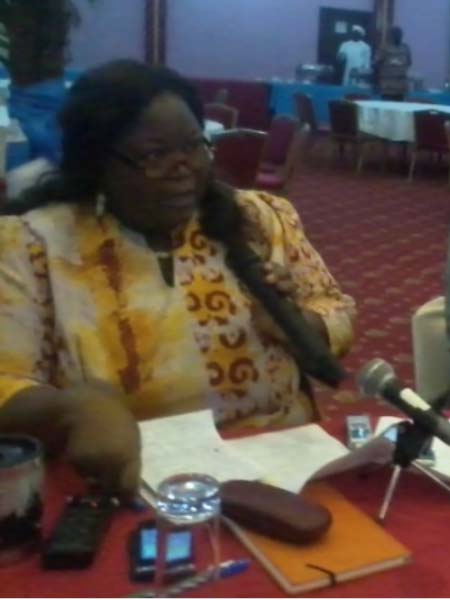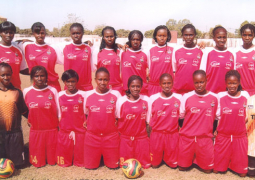
Hello and warm welcome to yet another edition of your weekly agriculture and livestock column.
In today’s edition we will bring you the recent concluded training of agricultural extension workers across the country on farmers field school training held at the Wellingara Model Horticultural Centre.
The importance attaches to capacity building on FFS and its impact on the farming community in improving agricultural productivity.
Kutubo Sanyang, the project manager of the Technical Cooperation Program (TCP), project funded through the Food and Agricultural Organisation (FAO), lamented on the significance attached to this Technical Cooperation Pogram project called TCP.
He said the importance attached to this training could not be overemphasised as TCP had conducted a very significant training for extension workers across the six agricultural regions with the aim to enhance their capacity building with the required knowledge and skills on the concepts of farmer field schools and agronomic practices for improved cowpea production and utilisation.
He said the training had yielded a big impact on the farming community, particularly the extensions workers and the farmers in getting the required knowledge to improve agricultural productivity.
He noted that capacity building for farmer field school was one of the tools that the TCP used to strengthening the capacity of the farmers in boosting their agricultural production and productivity.
He explained that one of the best training to boost agricultural extension was the training of trainers on farmer field school supported by the Technical Cooperation Program project funded through the FAO.
The training that brought participants from the six agricultural regions was organised by the Department of Agriculture under the FAO funded technical cooperation programme project and was geared towards strengthening their capacity in improving agricultural productivity.
Joko Kutubo E. Sanyang, national project manager also lamented on the importance attaches to this project and its impact on the agricultural communities in terms of strengthening their agricultural best practices.
He said the training was aimed to prepare extension workers on the best practices on farmer field schools (FFS), make the effort to know the farmers’ perception about farming and the adoption and implementation of good agricultural practices for increased agricultural production and improvement of livelihoods.
This would create the opportunity to identify and characterise farmers production constraints which would determine the critical entry points into the FFS, he said.
During the course of project implementation, information on project activities would be prepared for publication in the FAOR-Gambia Newsletter and in the local press media, newspapers, radio and television, he added.
The action would create visibility for the project outputs, in particular, emerging success stories of the impact of the project activities on the lives of women cowpea farmers would be prepared and published, Mr Sanyang further stated.
In addition, and to support after-project farmer training activities, information brochures and training materials on cowpea production, post-harvest management, marketing and utilization would be published for wide-scale distribution to cowpea farmers and field extension agents in The Gambia.
The Project Management Committee established would remain functional to provide policy guidance and general oversight for project implementation, he said.
A monitoring and evaluation protocol would be designed for continuous assessment of progress of project implementation to ensure that the project objectives are being fully achieved, he stated.
Technical backstopping for the project would be provided to ensure that women cowpea farmers are adopting and applying the IPPM methods for ecologically sound and sustainable cowpea production leading to higher income generation and improved family nutrition, health and well-being, he noted.
He said at the end of the IPPM training of farmers in the FFS, an assessment of project activities would be conducted in the implementing farmer groups.
The primary objective of the assessments was to determine the impact of improved integrated production and pest management practices on women cowpea production systems, as well as improvements in farmer’s incomes from marketing of cowpea, he added.
The TCP training was geared towards enhancing the capacity of extension workers trainers with the required knowledge and skills on the concept of farmers field school and agronomic practices for improved cowpea production and utilization, he said.



